#for colored girls who have considered suicide
Text

for colored girls who have considered suicide / when the rainbow is enuf, Ntozake Shange
#for colored girls#for colored girls who have considered suicide#ntozake shange#poem#poetry#quote#quotes#words#writing#uploads
37 notes
·
View notes
Text
Who's Afraid of Virginia Woolf?: The show examines the complexities of the marriage of a middle-aged couple, Martha and George. Late one evening, after a university faculty party, they receive an unwitting younger couple, Nick and Honey, as guests, and draw them into their bitter and frustrated relationship.
for colored girls who have considered suicide/when the rainbow is enuf: The play follows seven nameless woman through a world of racism, oppression, and sexism. These women of color are named after the colors of the rainbow: Lady in Red, Lady in Blue, Lady in Purple, Lady in Yellow, Lady in Brown, Lady in Green, and Lady in Orange. They tell their stories and the stories of other women they know through poetry, music, and dance. It is a piece that flows effortlessly from one story into the next, never really taking a moment to breathe. The women often help each other tell their stories by acting as a chorus or stepping into the shoes of another character.
Propaganda under the cut!
Who's Afraid of Virginia Woolf?:
the only play ive read that really made me feel anything tbh. the tension all throughout it. the ending!!! the confusion and the sudden realisation.... the reality & illusion thing. Aughhhh
It's like eavesdropping on a couple fighting at a restaurant, but you're in their living room and they also invited over people they met for the first time that night
watching this feels like you've been invited to a dinner party and the couple hosting start bickering and you're feeling kind of awkward and then they start going straight for each other's metaphorical throats and acting like it's a game. every time you try to speak up or say "oh wow it's late we should be going" they make another excuse or they turn it on you. such chaos, such fun
it's straight people in a very toxic relationship who has out their drama in front of everyone and also it was written by a gay man and it is very funny
for colored girls who have considered suicide/when the rainbow is enuf:
A groundbreaking play/choreopoem about the lives of black women
#who's afraid of virginia woolf#for colored girls who have considered suicide#when the rainbow is enuf#for colored girls who have considered suicide/when the rainbow is enuf#round 3#polls#the straight play showdown
10 notes
·
View notes
Text

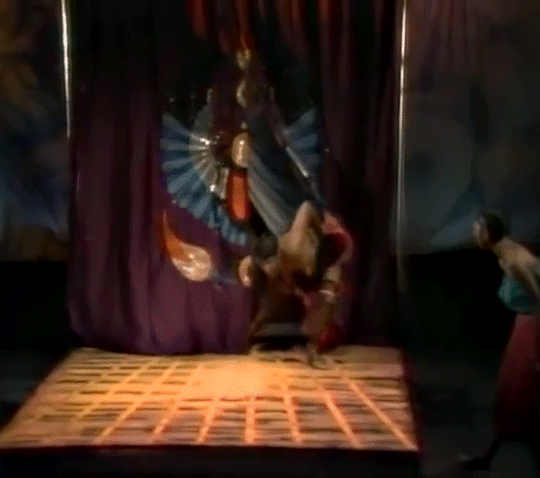


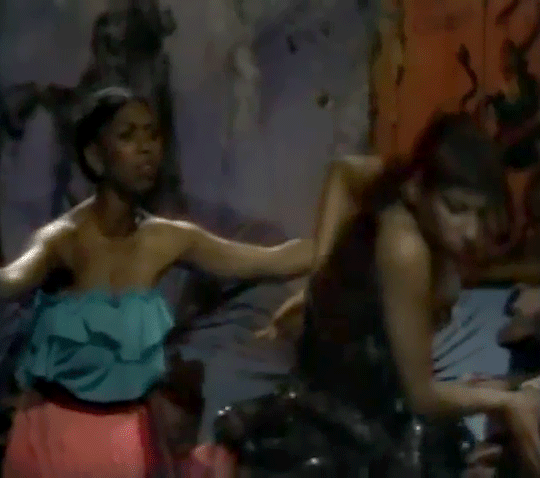
FOR COLORED GIRLS WHO HAVE CONSIDERED SUICIDE / WHEN THE RAINBOW IS ENUF (1982) dir. OZ SCOTT
63 notes
·
View notes
Text
i sat up one nite walkin a boardin house
screamin/ cryin/ the ghost of another woman
who waz missin what i waz missin
i wanted to jump up outta my bones
& be done wit myself
leave me alone
& go on in the wind
it waz too much
i fell into a numbness
til the only tree i cd see
took me up in her branches
held me in the breeze
made me dawn dew
that chill at daybreak
the sun wrapped me up swingin rose light everywhere
the sky laid over me like a million men
i waz cold/ i waz burnin up/ a child
& endlessly weavin garments for the moon wit my tears
i found god in myself & i loved her/ i loved her fiercely
Ntozake Shange // for colored girls who have considered suicide / when the rainbow is enuf
#ntozake shange#for colored girls who have considered suicide/ when the rainbow is enuf#poetry#choreopoetry#black poetry#black poets
2 notes
·
View notes
Photo
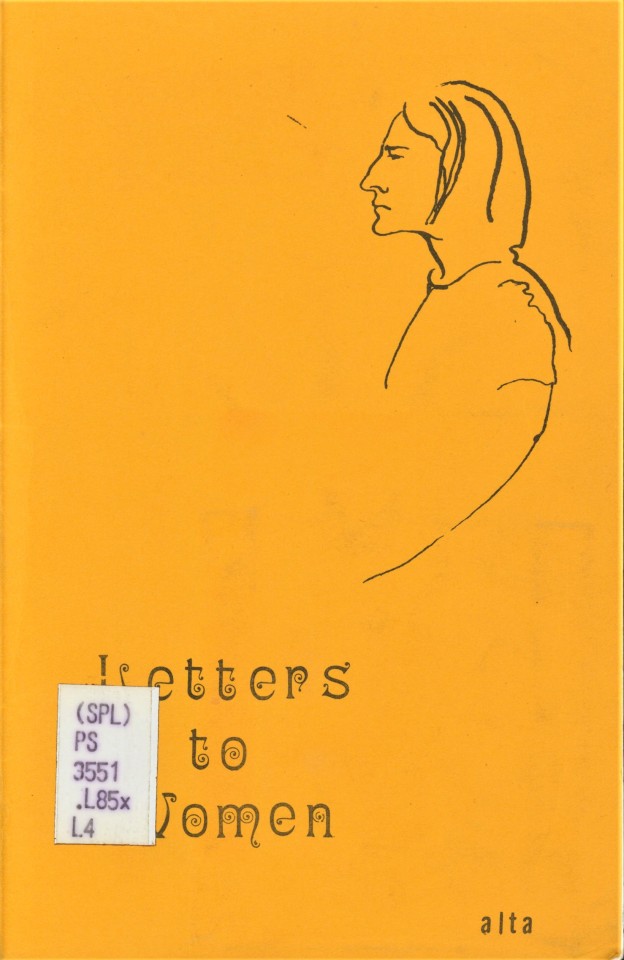
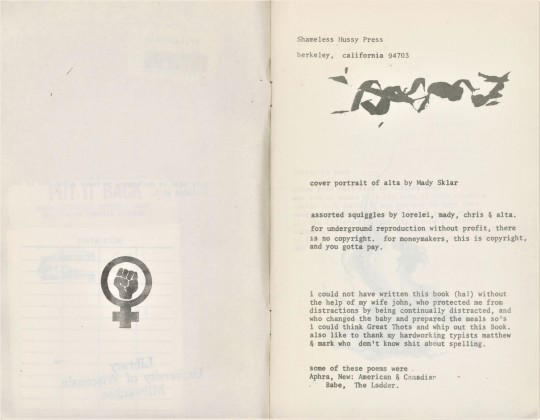
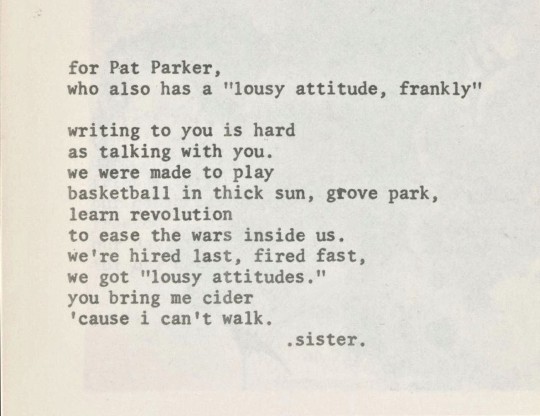
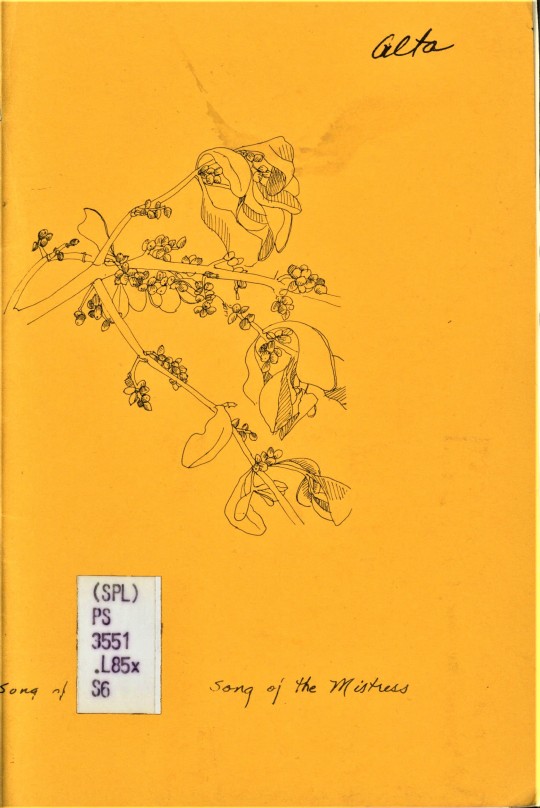
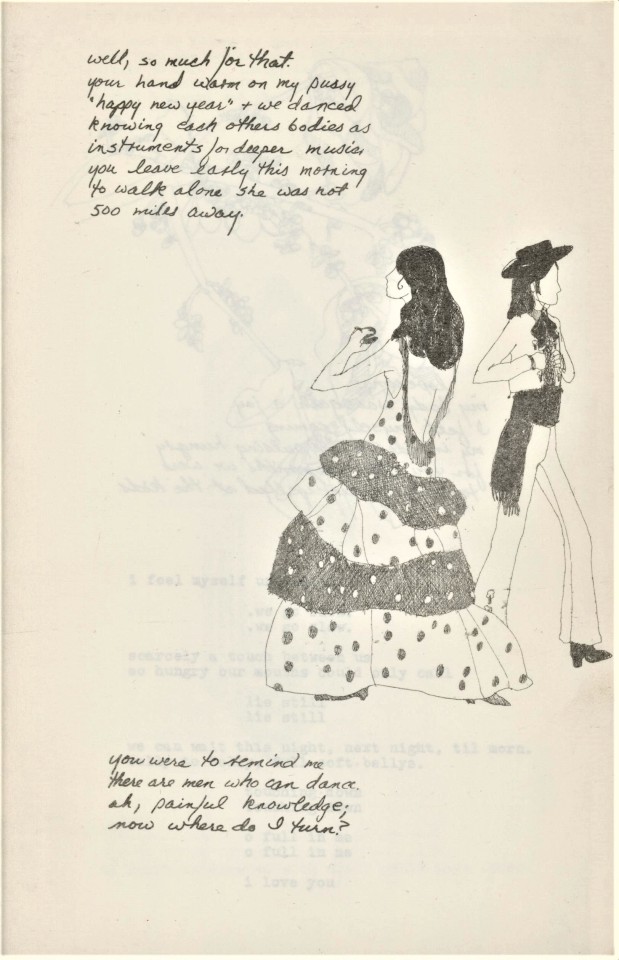
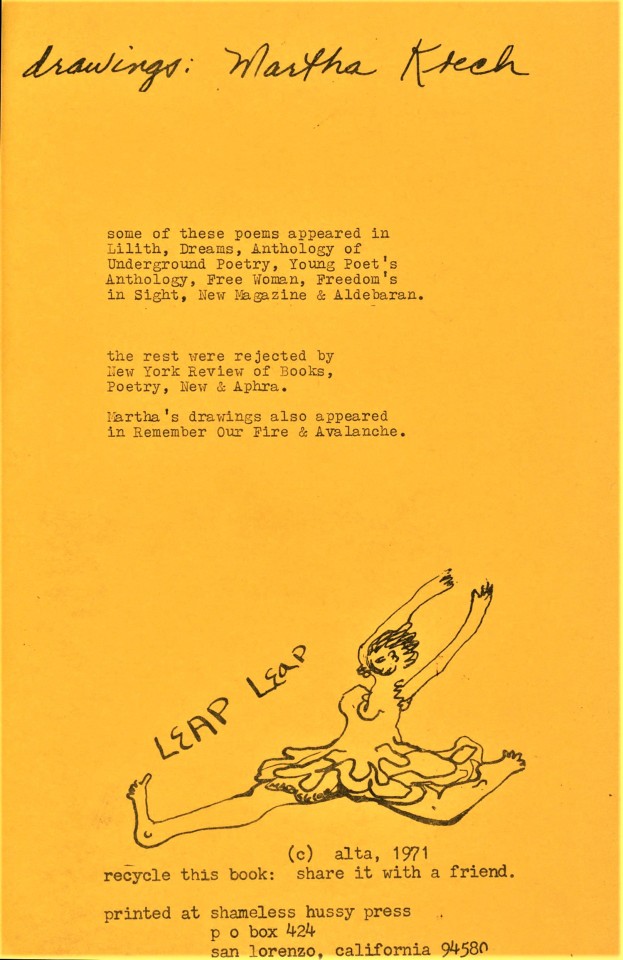
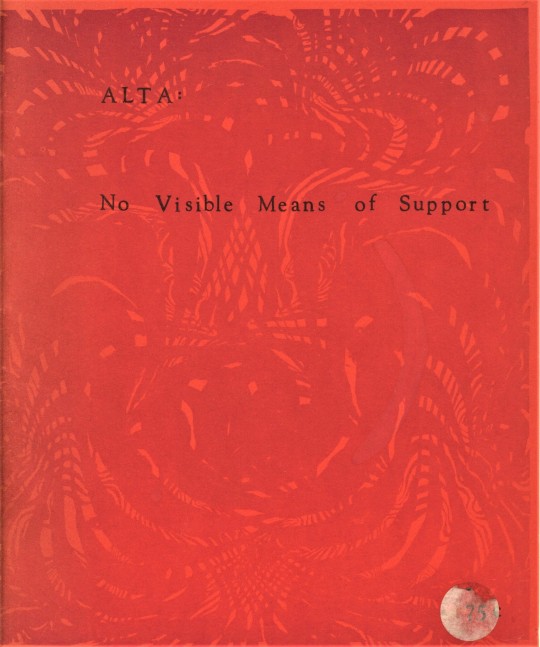
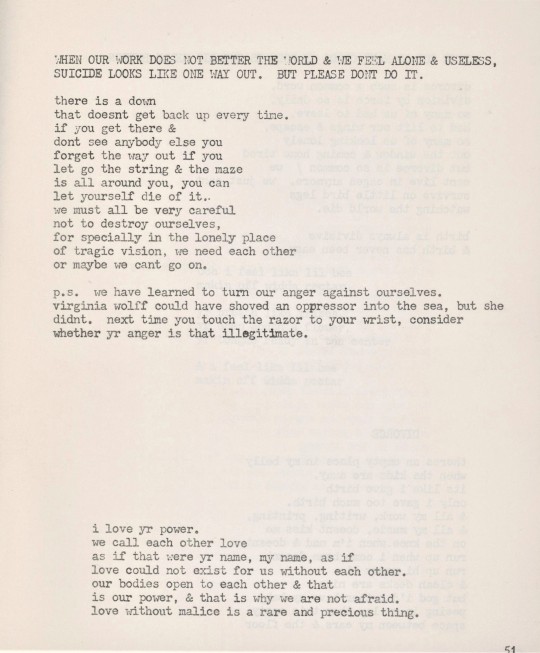
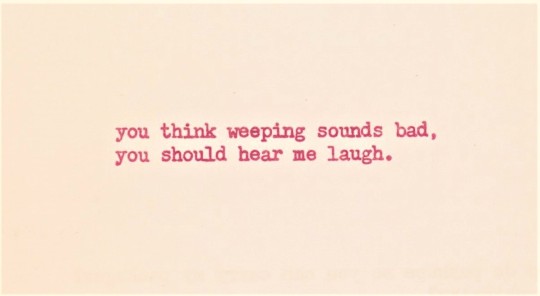
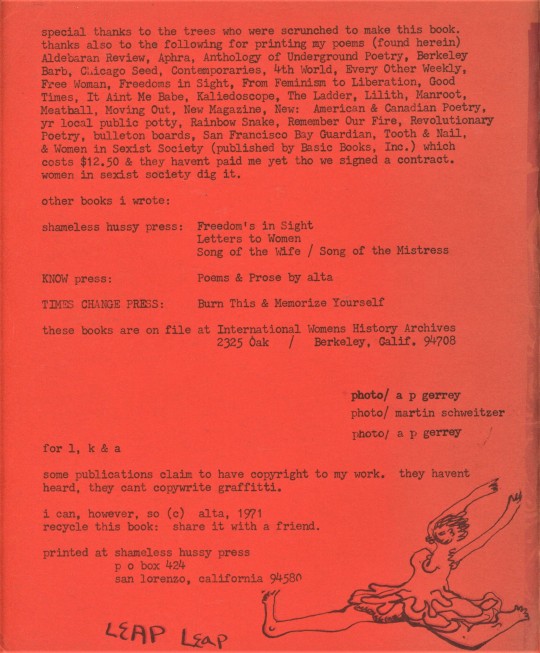
First Feminist Press!
Shameless Hussy Press
With the stress of Roe vs Wade potentially facing a repeal this summer, we want to let the women in our lives know they are not alone in their frustration. The fight women have been waging for their intellectual and bodily freedom has been a long one, so we wanted to revisit some history about the first women-owned feminist press in California, the Shameless Hussy Press! Poet and soon to be publisher Alta Gerrey founded the press in Oakland, California, in 1969, and would publish four women who later became prominent feminist writers: Pat Parker, Mitsuye Yamada, Ntozake Shange, and Susan Griffin. Alta published her own titles under her Shameless Hussy Press imprint, including three poetry collections preserved in our collection: Letters to Women, published around 1970; Song of the Wife; Song of the Mistress, published in 1971; No Visible Means of Support, published in 1971.
Alta’s sarcastic and straightforward writing style is reflected in the Shameless Hussy Press aesthetic. In her first collection, Letters to Women, she includes the iconic feminist symbol of a fist within the symbol of Venus and her copyright statement reads:
for underground reproduction without profit, there is no copyright. for moneymakers, this is copyright, and you gotta pay.
Alta emphasizes the aid of her friends and family in producing her book, and poetry aimed at letting women know that they were not alone in whatever injustices and hardships they faced, whether gender inequality and sexism, marriage and divorce, rape, mental illness, or raising children.
Alta’s second collection, Song of the Wife; Song of the Mistress, with drawings by Martha Kuech, reflects the intimacy the poet felt with her readers and how she used poetry as the outlet for emotions that could be a burden too heavy to carry at times. Letters to Women is dedicated “to every woman who is as isolated as i,” but Song of the Wife; Song of the Mistress "isn’t dedicated to anybody. eat yr hearts out.” Alta had a love for improper grammar, punctuation, and unconventional spelling. The first half of this second book reproduces a handwritten cursive script, presumably Alta’s handwriting, and the second half switches back to typewriter print. This title and Alta’s third collection, No Visible Means of Support, were both published after the Shameless Hussy Press had moved down the Bay to San Lorenzo, California, from its original location in Berkeley. Alta made the choice to move her independent press after the sabotage of a friend’s press in the same area, as well as to protect her daughter and herself from death threats she received for her work in the lesbian, feminist, and activist communities.
Shameless Hussy Press was the first to publish Ntozake’s Shange’s poetic performance work, For Colored Girls Who Have Considered Suicide When the Rainbow Is Enuf, which was later adapted into an Obie award-winning Broadway theater production. In 1976, Shameless Hussy published Camp Notes and Other Poems by Mitsuye Yamada, revolving around her experiences in the internment camps and the pain she felt at being perceived as an outsider.
The formation of the Shameless Hussy Press by Alta and the Women’s Press Collective by Judy Grahn, with aid from Pat Parker (who I posted about earlier), was quite inspirational for second wave of feminism. The four women who brought the feminist and lesbian publishing community to the foreground in California, Alta, Susie Griffin, Judy Grahn, and Pat Parker, had all met originally as neighbors over tea, but decided it was time to take action in their communities. Alta said in an interview that the group would often argue over how political their writing should be, wondering whether they should, “stick to the personal. [but] Susie kept saying, ‘the personal is political.’”
Griffin’s works were said to have launched ecofeminism in the United States as she rose to become one of the most influential American feminist writers of the 20th century. Alta’s Shameless Hussy Press gave these influential women the opportunity to be published outside the patriarchy of mainstream publishing, allowing them to completely claim their work as their own. Shameless Hussy ran from 1969-1989, despite being a one-woman-publishing house, publishing over fifty titles in its 20-y3qr existence.
–Isabelle, Special Collections Undergraduate Writing Intern
#Shameless Hussy Press#Alta Gerrey#Alta#Letters to Women#Song of Wife ; Song of Mistress#No Visible Means of Support#Judy Grahn#Feminist Press#Lesbian Poetry#Women's Press Collective#Pat Parker#Susie Griffin#Ecofeminism#Martha Kuech#Ntozake Shange#For Colored Girls Who Have Considered Suicide When the Rainbow is Enuf#Mitsuye Yamada#Camp Notes and Other Poems#Second Wave Feminism#Isabelle
29 notes
·
View notes
Text

Picked this up today!
Studying Ms. Shange’s work as she is the pioneer of the choreopoem
I’ve been reading an anthology of her work and my favorite pieces seem to be from Nappy Edges, a Daughter’s Geography, & For Colored Girls Who Have Considered Suicide / When the Rainbow is Enuf
I’ve also been watching interviews of Ms. Shange and how she describes the joy of movement and music and creation — I love joy. I want to live and love right here forever
#ff00a3#poetry#ntozake shange#for colored girls#nappy edges#a daughter’s geography#for colored girls who have considered suicide / when the rainbow is enuf#choreopoetry
5 notes
·
View notes
Text
"latent rapists" – Ladies in Red, Blue, Purple
Rapist doesn’t have to be a stranger to be legitimate.
Someone you never saw, but if you’ve been public with him, dance one dance, kissed him goodbye lightly, with a closed mouth,
Pressing charges would be as hard as trying to keep your legs closed from 5 fools trying to run a train on you
these men are friends of ours,who smile nice,stay employed and take us out to dinner, lock the door behind you, & we are left wit the scares
being betrayed by men who know us & expect like the stranger
we always thought waz comin that we will submit
we must have known women relinquish all personal rights
in the presence of a man who apparently could be considered a rapist
especially if he has been considered a friend
& is no less worthy of being beat within an inch of his life
being publicly ridiculed havin two fists shoved up his ass than the stranger we always thought it would be who never showed up
cuz it turns out the nature of rape has changed
we can now meet them in circles we frequent for companionship
we see them at the coffeehouse wit someone else we know
we could even have em over for dinner & get raped in our own houses
by invitation a friend
For Colored Girls Who Have Considered Suicide / When the Rainbow Is Enuf
Ntozake Shange
#latent rapists#poetry#black poetry#for colored girls who have considered suicide/when the rainbow is enuf#Ntozake Shange#rape#reporting rape#acquaintance rape#black rape victims
6 notes
·
View notes
Text
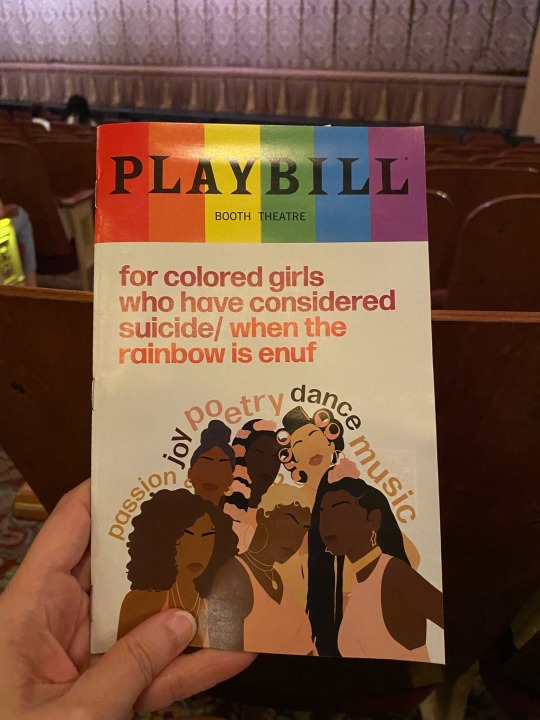
Show number three with @slayediest
6 notes
·
View notes
Text
I am woman, hear me roar
"I am woman, hear me roar", a review of Ntozake Shange's 'for colored girls who have considered suicide//when the rainbow is enuf' at the Joburg Theatre until 3 March 2024.
DANCING on beer cans and shingles, Siobhan King and Refilwe Modiselle (in the background) in a scene from for colored girls who have considered suicide//when the rainbow is enuf, directed by James Ngcobo. Photograph courtesy Joburg Theatre.
WHEN YOU ARE able to be present in a huge concrete interior in which one woman and her voice can with clear authority, take control of the whole space, with…
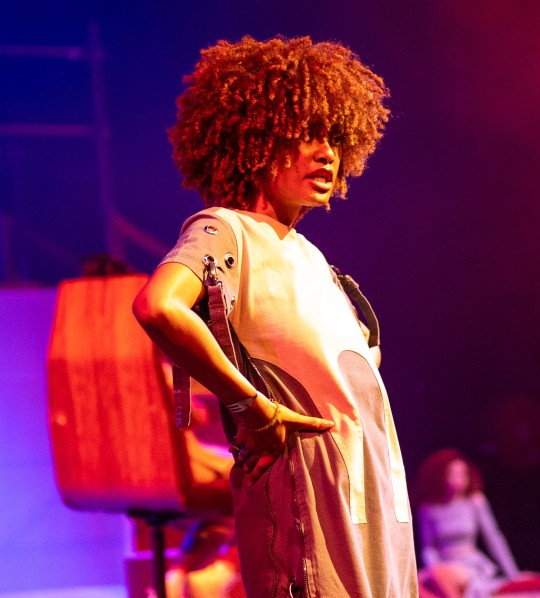
View On WordPress
#Akhona Bozo#American#Andrea Rolfes#Boitumelo Lesejane#Braamfontein#chapter 2 section 9#Danica Jones#Enos Ramoroko#for colored girls who have considered suicide//when the rainbow is enuf#Harlem#James Ngcobo#Joburg Theatre#Kyla Swart#Lulu Mlangeni#Mandla Mkaba#Miza Ngaye#Mona Monyane#Mpho Kodisang#Nelson Mandela Theatre#Nthabiseng Nkadimeng#Ntokaze Shange#Refilwe Modiselle#Sibikwa#Siobhan King#Siphesihle Ndaba#swankie mafoko#The Head and the Load#Thuto Gaasenwe#Tyler Perry#Willam Kentridge
0 notes
Note
Ot5 txt trying to change their ways (smoking, drinking,staying up late,harming others or themselves etc) for reader’s parents or reader’s approval !!

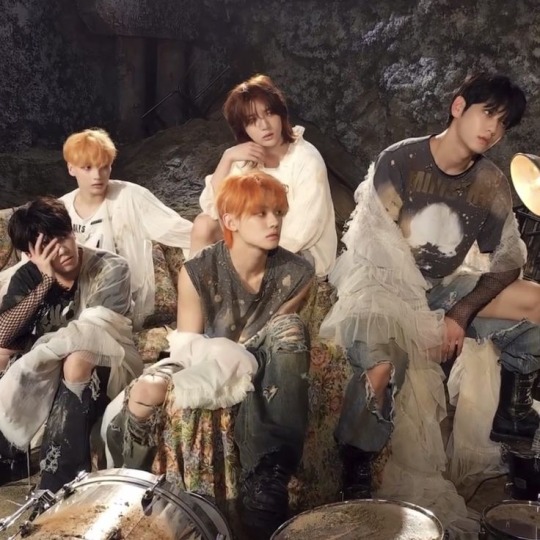
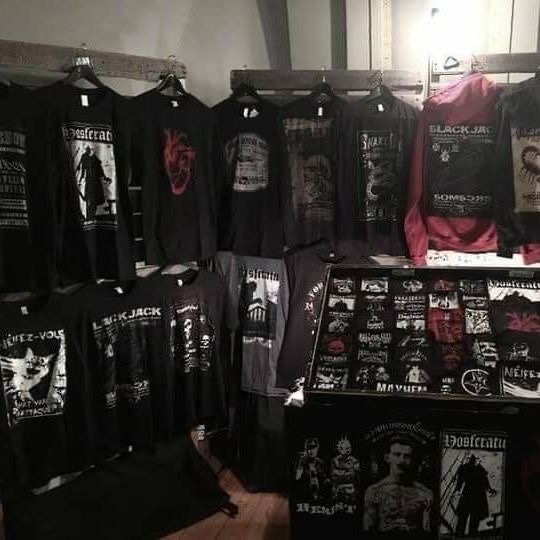
— emo txt trying to change their ways for your parents approval!
warnings <3: !cursing, use of drugs, smoking, !drinking, !sweet reader who is a bit of loser but in love, !loser and suicidal txt, mentions of smut, reader is in college, violence i guess, fluff!!
a/n <3: me personally i wouldn’t want txt to change their ways i’d accept them as they are..
to put it in simpler words; your parents absolutely hated your boyfriends guts.
they hated the loud screamo music he would blast in his car as he waited for you to come outside who the fuck is pierce the veil?
they hated your boyfriends stupid long hair, what kind of a boy grows his hair past his ears? and what’s with his unnatural hair color?
your parents hated how every time they saw your boyfriend he was either snorting coke in some abandoned lake with his friends, smoking pot with their friend groups along with drinking and again with the loud screamo emo music blooming in the air
your parents didn’t understand what you saw in him; they thought your boyfriend was a delinquent, a total scum bag and not that attractive
but then again they never brought it up to you, your parents knew you were sensitive and the over protective girlfriend and you wouldn’t hesitate to blindly defend your boyfriends actions
it also didn’t help that you were a very weird girl yourself, your boyfriend was your only friend. you spent all day in the comfort of your room, you were in college and you still collected plushies like if you were seven
although your parents loved you, they secretly wished you changed your ways and maybe that’s why you pulled your boyfriend considering he’s a loser too
hence why your parents just sigh quietly whenever they get reminded that your boyfriend is still around
another thing your parents didn’t like was how you were always up late with your boyfriend, he was a night owl meaning he never really got some shut eye and that meant you always were up with them doing lord knows what in his room
and you being very quiet and secretive with your parents you’d just giggle and say you two were watching anime together and nothing bad when they knew you were sexual active the moment the plushies on your bed were turned to their backs
although the thing that worried them the most was your boyfriends obvious signs of suicidal tendencies and your ability to not be turned off and go running for the hills was worrisome too
when your boyfriend was caught by your father in a knife fight with some guy simply because he was trying to flirt with you (although the guy swore to your boyfriend he was just getting help on an assignment) your boyfriend being your boyfriend he went a little bit overboard and didn’t believe your classmate
this resulted in an fatal knife fight, your father happened to be driving home when he’s seen your boyfriend laughing like some type of maniac on the ground covered with light cuts on his face seriously worrying your father
that following night, when your boyfriend explained why he was in that predicament and particularly begged for your father not to say anything to you about it he notices your boyfriends self harming scars that were healing around his forearms your father sighed in defeat agreeing
however there was a catch, either your boyfriend cleaned up his act or your father will tell you what really happened your boyfriends face that night
and your boyfriend and father could already imagine the amount of crying you’d do if you ever found out
weeks have passed and your boyfriend has been almost a month sober, no longer reeking of alcohol and drugs, actually fixing his sleeping schedule and getting therapy so he could learn how to cope with his tendencies of self harming himself and harming others when he was upset.
you however didn’t want your boyfriend to change, you knew the type of person he was and you loved and accepted him as he was but at the same time it felt nice knowing your boyfriend wasn’t self destructing anymore <3
a/n <3: very random but i ordered the ethereal ver of M3 and im very excited to pull emo txt 😔 hope u enjoyed im sorry if this isn’t the best im trying!
#angelina’s garden ♡!#coquette#emo boyfriend#emo x coquette#txt x reader#txt#txt x y/n#txt smut#txt headcanons#txt reactions#txt imagines#txt oneshots
100 notes
·
View notes
Text
for colored girls who have considered suicide/when the rainbow is enuf: The play follows seven nameless woman through a world of racism, oppression, and sexism. These women of color are named after the colors of the rainbow: Lady in Red, Lady in Blue, Lady in Purple, Lady in Yellow, Lady in Brown, Lady in Green, and Lady in Orange. They tell their stories and the stories of other women they know through poetry, music, and dance. It is a piece that flows effortlessly from one story into the next, never really taking a moment to breathe. The women often help each other tell their stories by acting as a chorus or stepping into the shoes of another character.
Gruesome Playground Injuries: It’s not your typical love story: Doug and Kayleen meet at the nurse’s office in their elementary school; she’s got a painful stomach ache, and he’s all banged up from a running dive off the roof of the school. Over the next thirty years, these scar-crossed lovers meet again and again, brought together by injury, heartbreak, and their own self-destructive tendencies.
Propaganda under the cut!
for colored girls who have considered suicide/when the rainbow is enuf:
A groundbreaking play/choreopoem about the lives of black women
Gruesome Playground Injuries:
two people but they end up only meeting/talking when they're injured and it's very dramatic and cool and they both need so much therapy and also allows for fun stage makeup
#polls#round 1#for colored girls who have considered suicide/when the rainbow is enuf#for colored girls who have considered suicide#when the rainbow is enuf#gruesome playground injuries#the straight play showdown
13 notes
·
View notes
Text
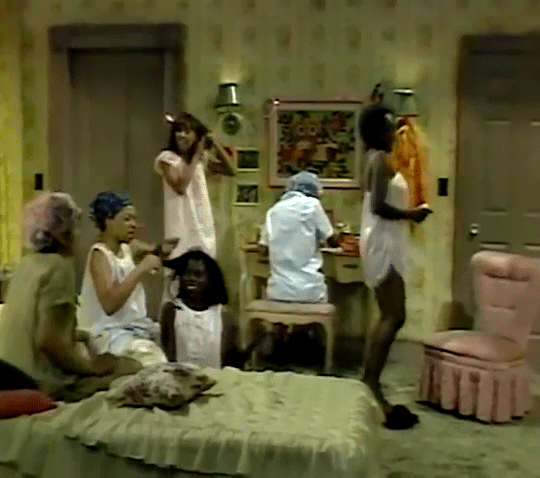
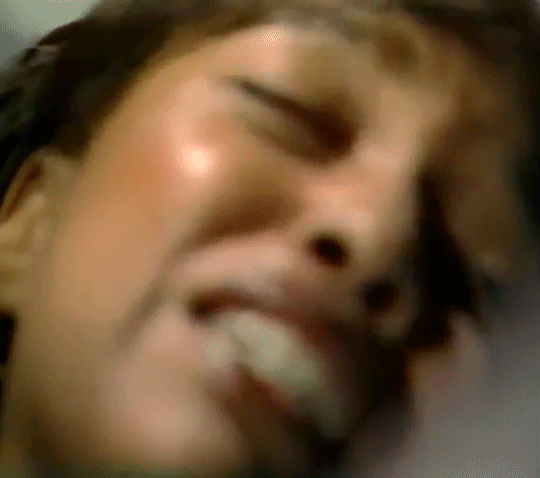
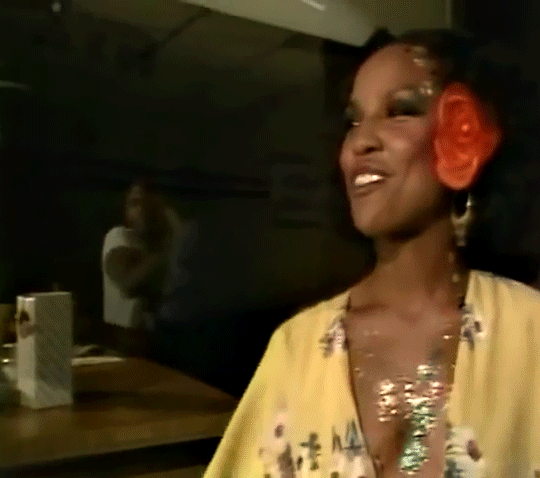
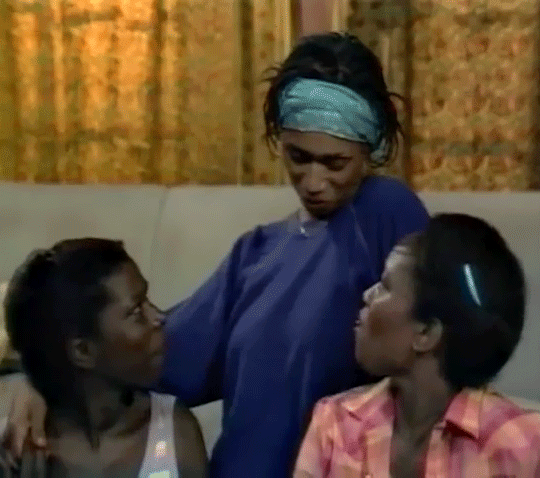
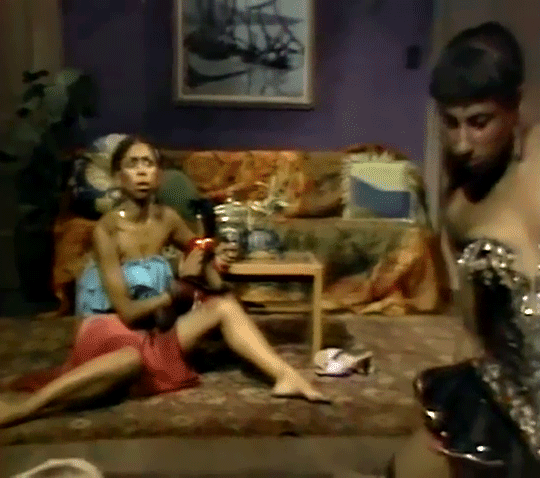
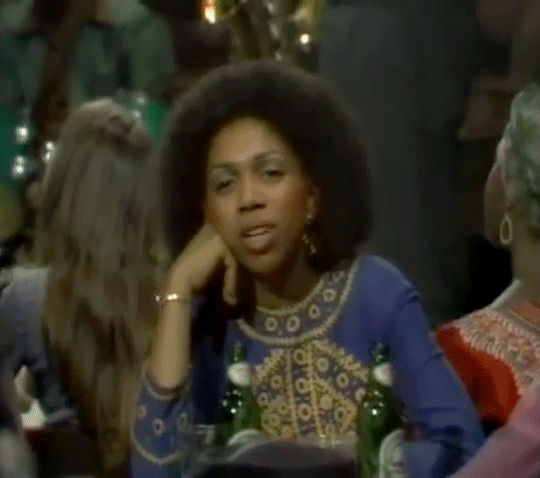

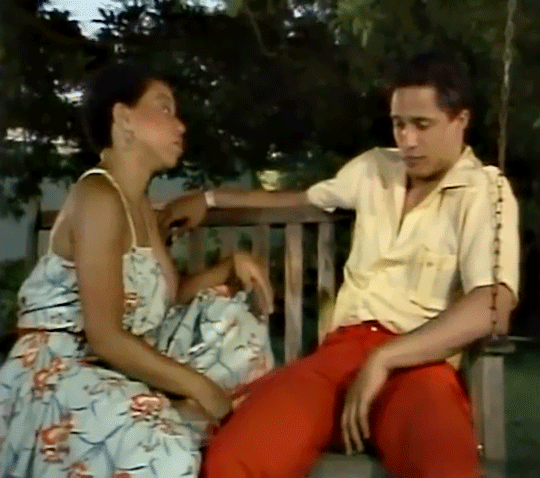
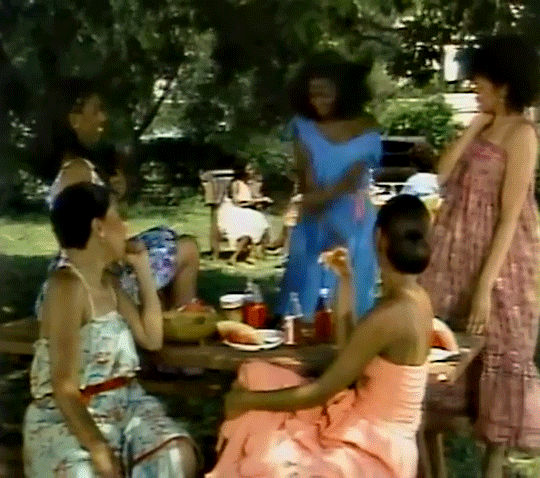
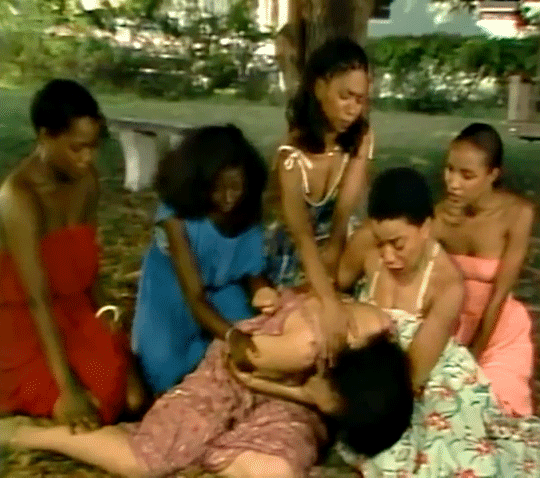
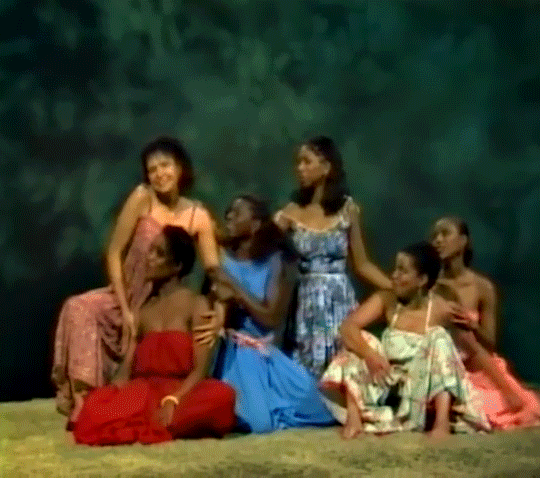
FOR COLORED GIRLS WHO HAVE CONSIDERED SUICIDE / WHEN THE RAINBOW IS ENUF (1982) dir. OZ SCOTT
32 notes
·
View notes
Text
Nesta, Interrupted: gendered perceptions of alcoholism in ACOSF
CW: addiction, sexual assault, gendered violence.
Creds: I’m a licensed counselor with a degree specialization in treating addiction. I have career experience with multiple modes of mental health, trauma, and substance use treatment in women-specific carceral, institutional, and healthcare settings. And I know anyone can come on the internet and say that, but I pinky promise.
The short version:
ACOSF stigmatizes alcoholism in line with cultural standards.
Western culture feels differently about female and male alcoholics due to systemic sexism, and thus treats them differently.
Women’s experience of alcoholism is often compounded by or even a result of systemic factors and intersectional identity.
Nesta’s treatment in ACOSF, while repugnant, is in many ways very accurate of attitudes today.
(I’ll be using “women/men” and “male/female” to denote cis afab and amab people. Little research exists on the experiences of queer, nonbinary and gender expansive considerations in addiction and recovery, which is a fuckin’ shame. Studies are also largely conducted with white participants due to enormous barriers to treatment for Black, Indigenous, and people of color, so this convo is inherently incomplete where it neglects those intersections.)
Okay, first things first: ACOSF is a book that stigmatizes alcoholism. I will not be taking questions.
The number one thing to understand is that in America, land of Miss Sarah, we are very bad at addiction treatment (tx). Why? Because our culture hates addicts has as stigma around addiction. And female alcoholics bear a very specific set of stigmas based in their identity.
In Susanna Kaysen’s memoir Girl, Interrupted , Kaysen’s character is institutionalized following a non-fatal suicide attempt. When evaluated, she’s diagnosed with borderline personality disorder, that bastion of diagnoses perfect for people (75% of whom are female-identified) who don’t fit into our polite definition of functioning. As the book unfolds, she reflects on how (white) women are often pathologized when they buck against systems of oppression that create the dysfunction in them in the first place. That is not to say other women in the institution are not genuinely in need of help, nor that mental illness in women is always from a systemic wound. But it’s crucial in the treatment of female addiction and mental health disorders to considered the systemic factors of gendered violence and patriarchy, and the attitudes we hold about women who struggle with drinking.
Think about female alcoholics in media. If she’s young, she’s a loose, reckless sl*t looking for trouble and deserving of the reality check when she finds it (Amy Schumer in Trainwreck, Lindsay Lohan in general). Or if the woman are older, they are discarded, or gross, or pathetic, or evil like anyone Faye Dunaway played or Eminem’s mom in 8 Mile (deep cut lol). Men are afforded a much larger spectrum of experiences and struggles - Ernest Hemingway, Leaving Las Vegas, Sideways, the dude from A Star is Born, Frank from Shameless (brilliant), frat boys, blue collar workers, introspective tortured artists, fucking IRON MAN. I could go on forever, but I hope that illustrates the depth and diversity of male-centric stories of alcoholism not often afforded to women.
One of the most empathetic and accurate portrayals of female alcoholism, in my opinion, is in the show Sharp Objects (the book, too, but actually witnessing it makes a difference). We see Amy Adams’ Camille swig vodka from an Evian bottle while fending off vicious, veiled attacks from her verbally and emotionally abusive mother and experiencing flashbacks of teenage sexual assault. We watch her struggle to find emotional safety in her conservative hometown, both wanting to fit in and get out in order to survive. We GET why she drinks and I have trouble blaming her for it even as she wreaks havoc on herself and others. We can see her clawing just to make it out alive, and alcohol is the tool she’s using to do it, for better or worse.
Which is where Nesta enters the chat. When we get our first glimpse of her alcohol use is ACOFAS, it’s portrayed as something everyone knows about but that she’s still mostly keeping it together - her dress is clean, her hair is neatly braided, she doesn’t need a chaperone to show up to a family event. The deterioration between ACOFAS and ACOSF is alarming, and we know that alcoholism is a progressive condition so that tends to happen. Was there a particular trigger? That’s hard to say. Solstice certainly didn’t help, especially with the pressures to perform and conform to the standards of the Inner Circle aka the people in power. I imagine seeing her sisters bouncey and reveling in the world that stole them and killed their father was probably.. tough, to say the least. The barge party seems to be a turning point as well, though this one is more confusing to me. But given the child abuse, extreme poverty, sexual assault, kidnapping, bodily violation, witnessing her father’s murder, almost dying, WAR - and that’s not even to mention essentially becoming a refugee - it would be amazing if she DIDN’T drink. She 100% has complex trauma, and is looking for ways to cope.
No one with full capacity dreams of becoming an addict when they grow up. Addiction, in my professional and personal experience, is largely a strategy for coping with a deeper wound. People don’t drink to feel bad. They drink to feel good, and to survive. Nesta herself is drinking to survive, but it’s having the unfortunate side effect of killing her at the same time. As she slides into active addiction, the thought of her own death may even be comforting, and alcohol in that way is her friend. (There's some interesting research right now framing addiction as an attachment disorder, but I don't know enough to speak on it much.)
So she obviously needs help. That’s not a debate. What is a debate is how the IC should best go about intervening. A variation on the Johnson method is used in ACOSF (the one from the show Intervention) and appears to be successful only because they threaten her if she doesn’t comply. This method has mixed data to support it, and while it’s very good at getting people into tx, there is a higher relapse rate for those who receive it (1). The “family” gathers and tells her the ways she’s hurt them and tell her the consequences if she doesn’t seek the help they’re offering. And again, so many of their reason are the effects on THEM, how she’s making THEM look, not her pain.
The IC’s ignorance and dismissal of her alcoholism in ACOSF is frankly mystifying. Why do they intervene on all the drinking and sexing, anyway? It seems like they’ve been fine enough with it up to this point. But now it's gone too far, not because of her illness but because she is embarrassing them. And I don’t know about you, but between Cassian apparently fucking half of Velaris and Mor’s heavily documented emotional drinking, that’s hard to square. It makes it feel much more likely that they don’t like the way she is coping, that she is not fitting into their picture of who she’s supposed to be. This picture is inherently gendered, because Prythian society and those who live in it have explicit and implicit expectations of gender roles, whether they’ll admit it or not. Cassian and Mor are playing their roles well; Nesta is not.
That leads me to believe it is NOT all about her, but the systemic and internal factors influencing their perception of her and the ways she’s struggling. It’s distasteful to them for her, a female, to be deteriorating this publicly, despite the fact that her very identity makes it harder for her to function in the patriarchy of Prythian. We hear almost exclusively about sexual violence against women, aside from 2 male characters. Past or present assault of women is a major plot point on multiple occasions (Mor, Gwyn, Nesta, Emerie, Rhysands mom and sister, the lady of autumn, Cassians mom, Azriels mom, I could go on). But something about the way Nesta is contending with that is unacceptable, and I believe it’s because she’s not trying to cover up her dysfunction. In prythian, we keep these things hidden- Mor’s assault is never processed in full, Azriel’s mom seems to be alone at Rosehall, priestesses are literally hidden inside a mountain for centuries. Women process trauma alone and in the dark, but Nesta is in the light and she is loud. She is refusing to hide her problems, and the IC don’t like that, whether they realize it or not.
So why don’t the IC understand this? Like I said earlier, as a culture we hate addicts, or what they stand for, in very much the same way I think we hate people experiencing homelessness. We convince ourselves it was a series of bad choices that led someone where they are, choices we would never make because we are smart, smarter than them. We believe are more in control than that. We can prevent bad things from happening to us because we are good, because we are better than whoever it’s happening to. But the reality is almost ALL of us are one hospital stay away from homelessness, just as all of us are one trauma away from addiction. And with female addicts, we have another layer of expecting women to only struggle nicely and quietly, or to go away. Intersectional factors are at play here, too: white women are much more likely to have alcoholism attributed to mental health and trauma factors, where people of color often suffer the same addiction being more associated with crime. You can imagine how that plays out differently.
So what is the effect of all this? Gendered expectations lead to not only external stigma around addiction and tx, but also to internalized stigma which can limit willingness to seek tx. (2) Many social forces encourage women to drink and discourage them from telling anyone. Factors such as poverty, family planning, access to education, racial discrimination, and location can make services harder to access. Internally, women are more likely to enter treatment with less confidence in their ability to succeed, but report more strengths and more potential to grow recovery strengths during and following tx. For men, the pattern is reversed (3). And women have more successful tx episodes overall when gendered considerations are a part of the design and implementation of services (4). For Nesta, the effect is that she’s forced into treatment and copes by having hate sex with her ex and changing herself to conform to her family’s expectations while the House and the Valkyrie’s actually take care of her. I do not see how Sarah drew the line from there to recovery, I truly don’t. If anything, she recovers in spite of the ICs intervention, not because of it.
In summary, Nesta Archeron deserved better. Nesta deserved the same compassion the book gives to men who are struggling, and it’s a reflection of not just the book’s culture but the author’s culture that she doesn’t get it. Female alcoholics are worthy of treatment that integrates their identities, as those identities are often essential factors contributing to their addiction. What's shown in ACOSF is a reality many women live, and they shouldn't have to.
Barry Loneck, James A. Garrett & Steven M Banks (1996) The Johnson Intervention and Relapse During Outpatient Treatment, The American Journal of Drug and Alcohol Abuse, 22:3, 363-375, DOI: 10.3109/00952999609001665
Groshkova T, Best D, White W. The Assessment of Recovery Capital: Properties and psychometrics of a measure of addiction recovery strengths. Drug Alcohol Rev. 2013;32(2):187–94.
Best D, Vanderplasschen W, Nisic M. Measuring capital in active addiction and recovery: the development of the strengths and barriers recovery scale (SABRS). Subst Abuse Treat, Prev Policy. 2020;15(1):1–8.
Polak, K., Haug, N.A., Drachenberg, H.E. et al. Gender Considerations in Addiction: Implications for Treatment. Curr Treat Options Psych 2, 326–338 (2015). https://doi.org/10.1007/s40501-015-0054-5
#nesta archeron#pro nesta#alcoholism#mental health#sexism#acotar#acosf#stigma#rehabilitation#prythian university#sjm critical
124 notes
·
View notes
Text

Ntozake Shange, from For Colored Girls Who Have Considered Suicide When the Rainbow Is Enuf
[Text ID: “i found god in myself / & i loved her/ i loved her fiercely”]
#ntozake shange#writings#literature#choreopoem#excerpts#fragments#selections#words#quotes#typography
2K notes
·
View notes
Text
I'm been tracking my productivity in my Slingshot organizer. I got a HOT PINK cover and I love it!
Been trying to log in at least some writing/revising/recording time when I'm actively working on my manuscript and adding to it in some way
Also trying to log in time studying poetry. I started my winter break studying forms and Langston Hughes. Sidetracked into some Bad Bunny for a minute. Kid's dope, what can I say...
Right now I am on my 2nd read through of For Colored Girls Who Have Considered Suicide / When The Rainbow Is Enuf by Ntozake Shange
I read it through out loud first and now I'm going through line by line and annotating, paying special attention to the visual cues in each line
I have found that I am drawn to Ms. Shange's pacing and how she navigates that with or without the use of slashes, line breaks, or capitalization (at first glance, you wonder why she chose to use a certain technique here and not there to arrive at the same effect. on second glance, there is a genius to her consistency).
Then I'll be off to find footage of different performances of this choreopoem so I can pay special attention to the blockage, the use of music and dance, as well as delivery of lines. & I'll be annotating along the way lol it'll be fun
Other things I've tracked: my period (yay no more creepy period apps) & my sobriety (no alcohol going on 5 days now, ayee. i didn't give up weed tho. i love weed)
#life update#ff00a3#poetry#poetry notes 📝#ntozake shange#for colored girls who have considered suicide / when the rainbow is enuf
0 notes
Text
"dark phrases" – Lady in Brown with Ladies in Red, Blue, Orange, Green, Yellow and Purple
dark phrases of womenhood
of never having been a girl
half-notes scattered
without rhythm
no tune distraught
laughter falling over a black girls shoulder
it’s funny
it’s hysterical
the melody-less-ness of her dance
don’t tell nobody, don’t tell a soul
she’s dancin on beer cans and shingles
this must be the spook house
another song with no singers
lyrics
no voices & uninterrupted solos
unseen performances
are we ghouls?
children of horror?
the joke?
don’t tell nobody, don’t tell a soul
are we animals? have we gone crazy?
I can’t hear anythin
but maddening screams
& the soft strains of death
& you promised me, you promised
somebody, anybody
sing a black girls song
bring her out to know herself
to know you
but sing her rhythms
Carin
struggle
hard times
sing her song of life
shes been dead so long
closed in silence so long
she doesn’t know the sound of her own voice
her infinite beauty
she’s half-notes scattered
without rhythm
no tune
sing her sighs
sing the song of her possibilities
sing a righteous gospel
let her be born
let her be born and handled warmly
& this is for colored girls who have considered suicide
but are moving to the ends of their own rainbows
For Colored Girls Who Have Considered Suicide / When the Rainbow Is Enuf
Ntozake Shange
#dark phrases#poetry#black poetry#For Colored Girls Who Have Considered Suicide / When the Rainbow Is Enuf#Ntozake Shange#black women
6 notes
·
View notes